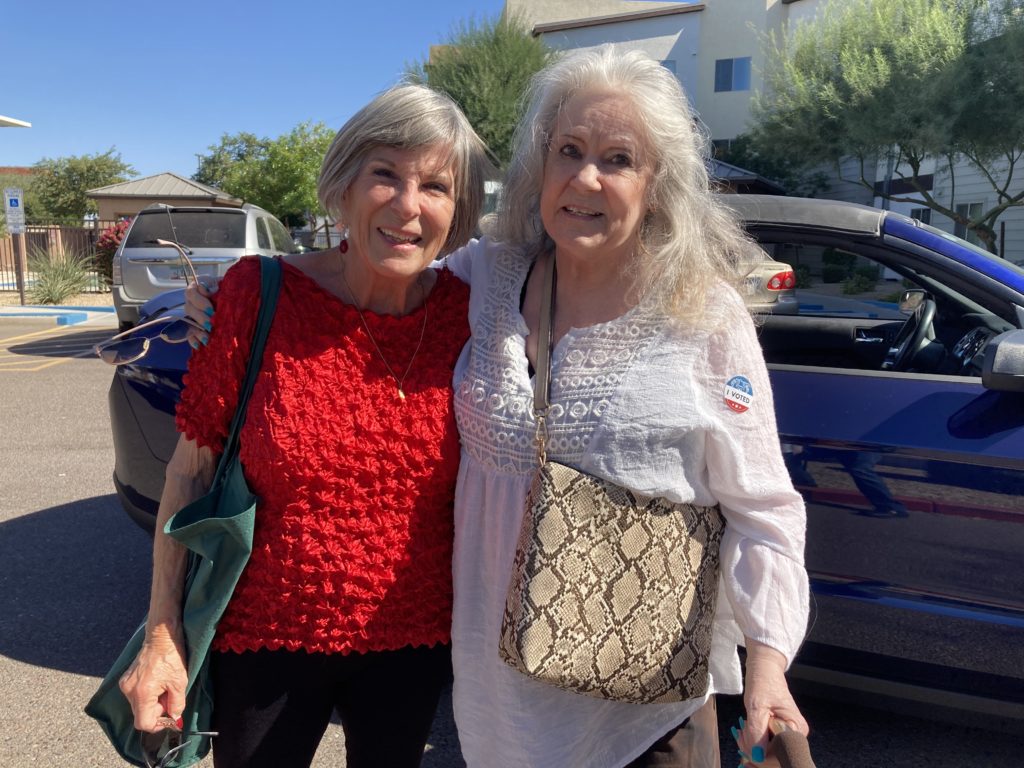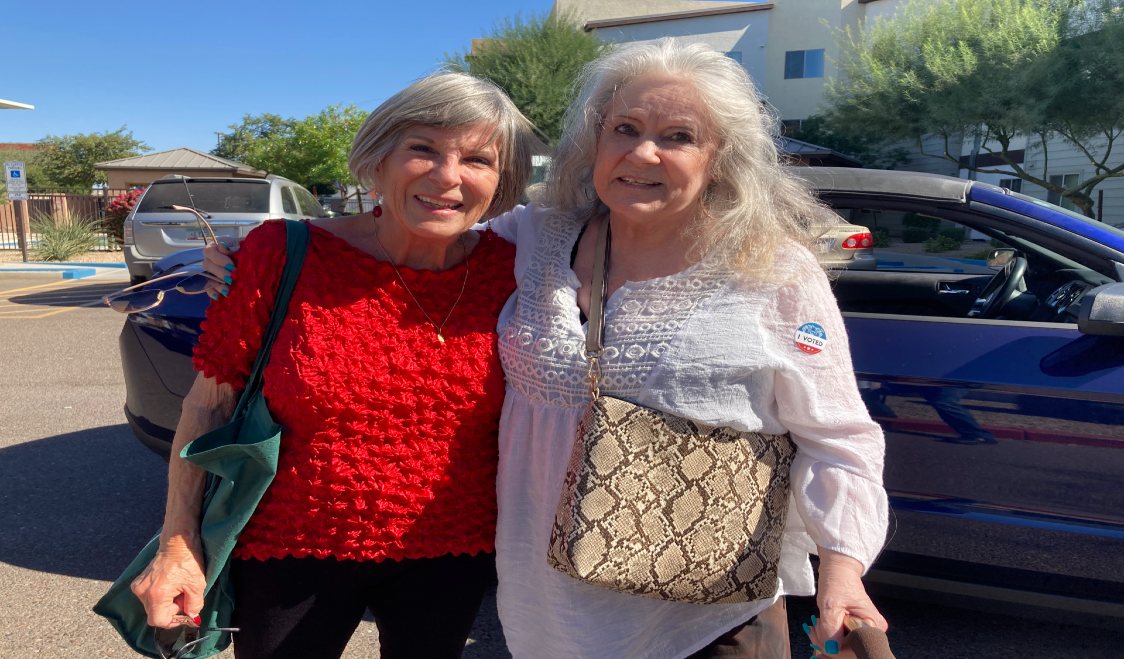As the car rolled to a stop about 100 feet outside of the polling place in Southeast Phoenix, 71-year-old Bobbie pressed her cane into the pavement and started to slowly climb out of the passenger seat. The young woman driving Bobbie scurried around to help her, and then chaperoned her step-by-step to the entrance.
I didn’t know Bobbie’s name until about an hour later, when she walked back past my volunteer post. There was no waiting line at this polling location, so I asked her if everything went okay. Bobbie said that it did; she just likes to take her time and read through all of the materials before she casts her ballot. Attagirl.
When Bobbie told me that her ride to the polls wasn’t coming back and that she was going to walk five blocks home, I told her that I was going to take her. She seemed extremely relieved. I was, too.
Bobbie voted for Donald Trump in 2016, but today she punched her ticket for Joe Biden. When I asked her why Trump four years ago, she said:
“Well, he didn’t seem like all the other politicians, and he had a lot of money so he could do what he wanted to once he got there.”
“Why Biden this time?”
“I don’t like how Trump has treated his wife and other women. I think a man, woman children — everybody’s got a purpose. Everybody deserves respect.”
“So you didn’t notice that about him the year he was running for president last time — the Access Hollywood tape and all that?”
Bobbie said she really didn’t follow the news all that closely back then. I restrained myself from making a timely but insidery Kelly Lauffler joke.
As I helped Bobbie out of my car and we began pacing toward her building, a short woman with a shiny red top approached us. Bobbie noticed her friend Janet and said: “Hey girl!”
Janet just turned 78. When we told her we’d just come from the polls and that Bobbie voted for Biden, I asked Janet who she was going to support.
“Trump! I’m voting for Trump again.”
Bobbie seemed a little surprised. I learned a minute later that the two friends don’t talk about politics. At all.
“Why Trump?”
“Because he takes care of business. He gets things done. And he’s a God-fearing man.”
“You think he’s a religious man?”
“I don’t say religious, but he wants to use what God’s given him and get stuff done!”
Restraint again, then a follow up: “What would you say are the one or two biggest things that he’s ‘gotten done’ since he’s been president?”
“Well, he cares about other people. He’s not self-centered. He’s looking to make the world a better place.”
“Well, okay. And the two of you never talk about this stuff?”
In unison: “Nope!”
The ladies sidle up to each other to pose for a photo, then Janet strides east into the desert sun.

When Bobbie and I get to the front door, I can tell she doesn’t want me to leave. I tell her that I need to get back to the polls, but seven hours later, I feel bad that I left so quickly.
Bobbie and Janet didn’t name a single issue or specific goal that either nominee has achieved or even proposed. It was a stark reminder of what I used to tell candidates I worked for: Voters make decisions emotionally. How they feel about you — in their gut — is often just as important as the details. Sometimes more so.
Plenty of politics is marketing, plain and simple. As a candidate said to me years ago on our losing Election Day: “You were right, Michael. It’s selling soap.”
Yes. Soap with a soul. Alas.
Yet it is our system. Every eligible American, no matter how well or how poorly informed, has the very same right to formalize their opinion with the very same weight as any other.
Or at least that’s how it’s supposed to work.


